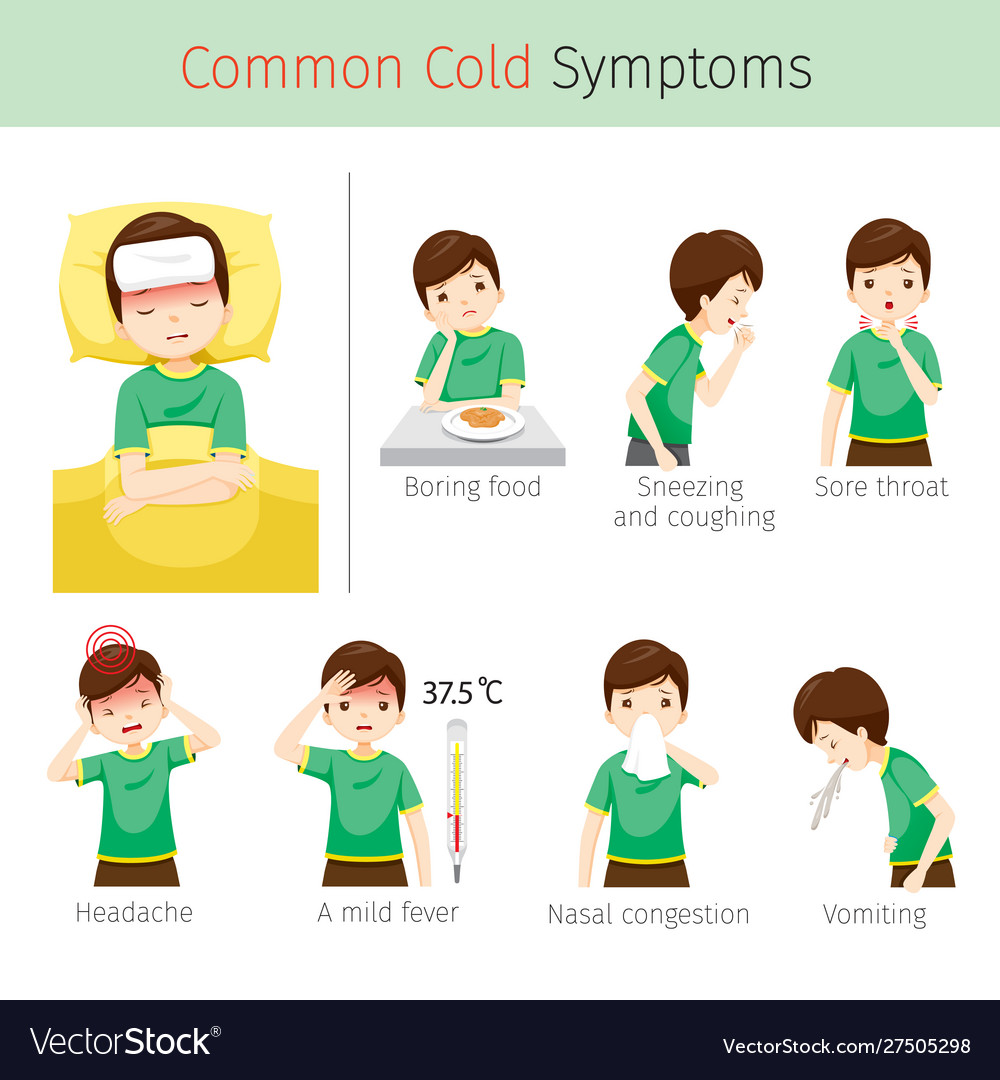The disease is transmitted through the respiratory tract, when we breathe in droplets containing the virus caused by coughing, sneezing, etc. Therefore, prevention is very important.
Recognize colds
Symptoms of a cold include: itchy throat, sore throat, stuffy nose, clear runny nose, cough, sneezing, headache, body aches, chills, and possibly a low-grade fever. Usually symptoms can appear 1-3 days after infection with the virus, and usually last 5-7 days.
However, we need to distinguish a cold from the flu. Because the flu is a disease caused by influenza viruses, it has more severe symptoms and progresses faster than a cold. Influenza usually begins with sudden and rapid manifestations such as sudden high fever, muscle aches, headache, fatigue...
According to research, the rate of people getting colds increases at times of weather changes during the year, such as the time from the dry season to the rainy season and when the cold season is cold.
And in particular, colds rarely have dangerous complications, but cause many troubles for patients in work as well as in daily life. Sometimes the disease persists without stopping or recurs, especially in people with weak resistance.

How to prevent colds when it's cold?
Due to the low temperature, the body has not yet adapted, easily leading to infection, so we need to take some measures to improve our health to prevent disease.
- Need to maintain basic hygiene, get enough sleep: In the prevention of colds, it is very helpful to take basic hygiene measures. In which, it is necessary to wash hands with soap often, especially after contact in public places or crowded places.
You should maintain enough sleep because in the winter when the weather is cold, many people have trouble sleeping, so they need to go to bed on time, you can use herbal teas to sleep better. If sleep deprivation affects the immune system, getting enough sleep or sleeping more can help prevent respiratory diseases. According to research, people who get enough sleep have increased immunity against colds than those who sleep less than 8 hours.
- Avoid direct contact with infected people: The disease is spread by airborne viruses, so it is important to limit contact with sick people, especially in crowded and public places. The disease spreads when an infected person coughs, sneezes, etc., so objects around an infected person can also be accidentally transmitted. Thus, when seeing an infected person, it is necessary to limit contact to avoid infection. Limit close contact (contact at a distance of < 2m) with people with respiratory symptoms such as fever, cough, sneezing... Wear a mask when going to public places.
- Strengthen vitamin C, do not smoke: On cold days, it is necessary to increase vitamin C to help supplement vitamin C effectively to help prevent and cure colds. If you smoke, you should stop immediately because cigarette smoke causes irritation in the airways making us vulnerable to viruses. In addition, smoking also makes you more susceptible to other infections caused by viruses.
- Need to exercise regularly: It's cold, many people are afraid to exercise, this makes it easy to get sick, but this is a habit many people have in the winter. Therefore, to prevent colds, keep a regular exercise routine, you may not be able to practice early in the morning but move to a more suitable time, such as indoor exercise. Because regular physical activity can increase the number of cells of the immune system, helping to fight many types of bacteria and viruses that are harmful to health. In addition, regular exercise also helps improve physical fitness, prevent other metabolic and cardiovascular diseases. Therefore, it is extremely important to keep a moderate and suitable exercise routine for your body.

To summarize: In order to avoid infectious diseases in general, colds in particular, it is necessary to keep the body warm, especially the nose and throat area. It is recommended to drink warm water regularly to keep the oropharyngeal mucosa from drying out. Need to wash hands properly and often, if someone in the family is sick, then you should regularly use disinfectant to clean the surfaces of tables, chairs, household objects... to limit the spread of disease. Do not share towels, dishes, glasses, clothes, etc. with sick people.
For those who are already sick, pay attention to cover your mouth with your elbow or tissue when coughing, sneezing and wear a mask when in contact with others.
Source: Health & Life Newspaper